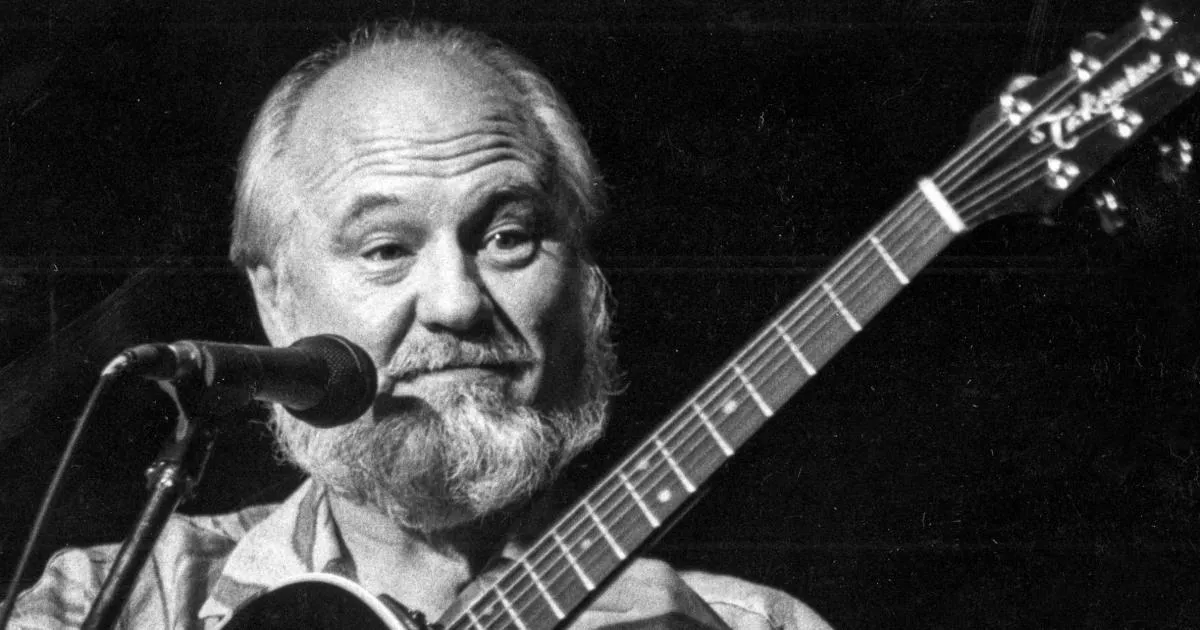
Sonny Curtis, a legendary figure in the world of rock 'n' roll, has passed away at the age of 88. Known for penning the raw classic “I Fought the Law” and the iconic theme song for The Mary Tyler Moore Show, Curtis's contributions to music have left an indelible mark on the industry. His wife, Louise Curtis, confirmed his death to The Associated Press, and his daughter, Sarah Curtis, shared that he had been suddenly ill.
In 2012, Curtis was rightfully inducted into the Rock and Roll Hall of Fame as a member of The Crickets. Over his prolific career, he wrote or co-wrote hundreds of songs, including Keith Whitley’s celebrated country hit “I’m No Stranger to the Rain” and the Everly Brothers’ “Walk Right Back.” Notably, Curtis composed the latter while he was undergoing Army basic training. His songwriting prowess attracted a diverse array of artists, such as Bing Crosby, Glen Campbell, Bruce Springsteen, and the Grateful Dead, who all covered his works.
Born during the Great Depression to cotton farmers in Meadow, Texas, Curtis had a close friendship with Buddy Holly. He was deeply involved in the early rock music scene, jamming with Holly in the mid-1950s and even opening for Elvis Presley when he was still a regional act. Curtis's songwriting abilities began to shine through early in his career; by the age of 20, he had written hits like “Someday” for Webb Pierce and “Rock Around With Ollie Vee” for Holly. Although he left The Crickets before Holly's rise to fame, he returned following Holly's tragic death in a plane crash in 1959. His work during this time included the album “In Style with the Crickets,” featuring the now-classic “I Fought the Law.”
Although “I Fought the Law” was written quickly, it took until 1966 for the song to gain widespread popularity, thanks to the Texas-based Bobby Fuller Four, who propelled it into the Top 10. Over the decades, the song has been covered by a plethora of artists across various genres, including punk legends The Clash and country icons like Johnny Cash and Nanci Griffith. Curtis himself acknowledged the significance of this song, stating, “It’s my most important copyright,” in a 2014 interview with The Tennessean.
In 1970, while working on commercial jingles, Curtis crafted the unforgettable theme song for The Mary Tyler Moore Show. Titled “Love is All Around,” it features lyrics that resonate with audiences even today. The famous lines, “Who can turn the world on with her smile? / Who can take a nothing day, and suddenly make it all seem worthwhile?” became part of television history, particularly paired with Moore’s iconic hat toss. Other artists, including Sammy Davis Jr. and Joan Jett, later covered this timeless song.
The journey to create this beloved theme song began when Curtis was approached by his friend Doug Gilmore, who informed him that the sitcom's developers were in search of an opening song. After receiving a brief format outline, Curtis met with co-creator James L. Brooks and played his composition. Initially, Brooks was hesitant, but as Curtis performed, the room quickly filled with interested parties, leading to the song's eventual acceptance. Curtis produced two versions of the song, with the second becoming the well-known theme for the remaining seasons of the show.
Throughout his later years, Curtis released several solo albums, including “Sonny Curtis” and “Spectrum,” and achieved chart success with the 1981 single “Good Ol’ Girls.” He continued to perform alongside Jerry Allison and other members of The Crickets, contributing to their albums such as “The Crickets and Their Buddies,” which featured collaborations with notable artists like Eric Clapton and Graham Nash. One of his standout tracks, “The Real Buddy Holly Story,” served as a critique of the 1978 biopic about his friend.
Settling in Nashville during the mid-1970s, Curtis was later inducted into the Nashville Songwriters Hall of Fame in 1991 and, as part of The Crickets, into the Musicians Hall of Fame and Museum in 2007. His legacy was further solidified in 2012 when he and The Crickets were inducted into the Rock and Roll Hall of Fame, celebrated as the “blueprint for rock and roll bands” that inspired countless musicians worldwide.
Sonny Curtis’s passing marks the end of an era for rock music, but his songs will continue to inspire and resonate with fans for generations to come. His remarkable talent and influence on the music industry will never be forgotten.